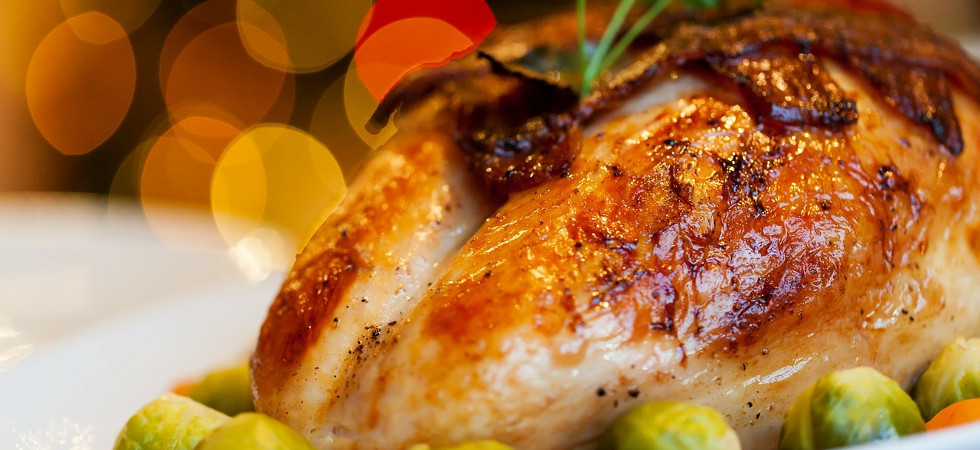Did you know we consume as much as three times our recommended daily calorie intake on Christmas day? But it’s not all doom and gloom…
Although the traditional Christmas dinner gets a bad rep, it’s actually a pretty healthy meal if we strip it back to the bare bones. We just need to be careful of how much we have.
Dr Sally Norton, from vavistalife.com, explains all.
Brussels sprouts
Your mum was right – they are good for you. They contain more than your daily requirement of vitamin K and plenty of B vitamins such as folate which is important in energy production – you’ll be thankful for that in the mid-afternoon Christmas slump! Steam them to retain as many nutrients as possible.
Turkey
A great source of lean protein (particularly the white meat, so go for the breast and steer clear of the fatty skin). Turkey also contains an amino acid called tryptophan, important for serotonin production (the ‘happy’ hormone).
Potatoes
Potatoes themselves are a good source of potassium and starchy carbohydrate. However they are best boiled in their skins. Careful with portion sizes of your roasties, just 3-4 will do. The downside of roast potatoes is that we often remove the skins (where the fibre is). Plus lots of calories are added when cooked in fat (not to mention the saturated fat in goose fat).
Parsnips
Parsnips are another source of fibre, potassium and also vitamin C. The cooking methods are where things can go awry…be mindful about adding honey or parmesan which add calories to an already hearty meal.
Red wine
Red wine is rich in anthocyanin, an anti-inflammatory antioxidant. But don’t think this can give you free reign – alcohol is ’empty calories’ and more than a glass or two will add to an already food-heavy day.
Cranberries
Cranberries also contain anthocyanin (giving them their bright red colour) and plenty of vitamin C. Sadly, though not much can be gained from the cranberry sauce, just have a little as possible as it has a high sugar content.






















